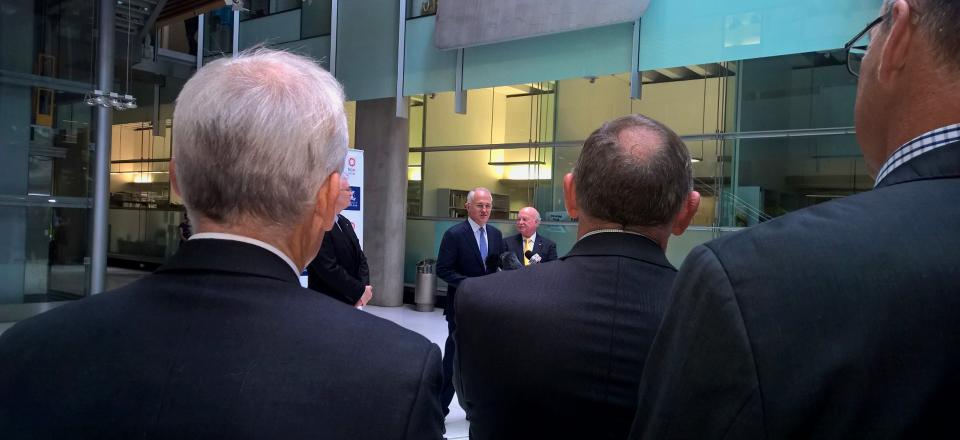Media Release: Expanded Bio21 to house global research hub

The Bio21 Institute is one of the University’s flagship research institutes, and for more than a decade has played an important role in positioning Victoria and Australia as a leading destination for life sciences and biotechnology research.
It is also a leading example of a successful academia-industry partnership. Australia’s largest multinational biopharmaceutical company, CSL, has been a partner in Bio21 since 2007.
The partnership has been so successful that the University is embarking on a $36.4 million, 5000 sq metre expansion of the Bio21 Institute. The new state-of-the-art facility will allow for the expansion of major technology platforms that underpin personalised medicine and the development of new diagnostics.
It will also be home to the CSL Global Hub for Research and Translational Medicine, where over time, CSL expects to more than double the presence of its research scientists, from 75 to around 150.
Work on the new building will commence in 2016 and the expansion is expected to be completed during 2017.
“This is an important industry-university partnership that will enable greater knowledge and technology transfer, drive innovation and ensure Australian research is translated into positive health outcomes around the world” said University of Melbourne Vice-Chancellor Professor Glyn Davis.
“The National Innovation and Science Agenda recognises that universities, government and industry are crucial partners in building and enhancing Australia’s innovation ecosystems. Our successful partnership with CSL – and the support Bio21 has received from all levels of government - is proof of this,” said Professor Davis.
“CSL is committed to fostering excellence in Australian research. R&D is our past and our future. The increased presence at Bio21 will allow CSL to increase its collaborations with University researchers, plus other research institutes and hospitals. It will also provide an expanded base for new national and international collaborations” said Dr Andrew Cuthbertson, CSL Chief Scientific Officer and R&D Director.
“This expansion makes business sense and is very exciting scientifically. Our research scientists find Bio21 an attractive and intellectually stimulating place to work, and the cross-cultivation of ideas from academia to commercial helps translate science into life-saving medicines” said Dr Cuthbertson.
“Bio21 is delivering a world-class research facility for Australia and will play an important part in advancing biomedical research knowledge and the development of new therapies,” said Professor Davis.
“The co-location of a large multinational with the University is a fundamental aspect to its success and will generate an environment in which other start ups and small businesses can thrive. “
“Precincts elevate collaboration, idea generation and accelerate commercialisation. The University is a proud partner in the Melbourne Biomedical Precinct” said Professor Davis.
About CSL
CSL (ASX:CSL) is a leading global biotherapeutics company with a dynamic portfolio of life-saving innovative medicines, including those that treat haemophilia and immune deficiencies, as well as vaccines to prevent influenza. CSL — including its two businesses CSL Behring and Seqirus — operates in over 30 countries with more than 16,000 employees. It’s unique combination of commercial strength, R&D focus and operational excellence enables CSL to identify, develop and deliver innovative medicines so its patients can live life to the fullest.
About BIO21
Bio21 is one of Australia’s largest biotechnology research institutes, accommodating more than 500 University researchers across the chemical, biomedical and bioengineering sciences. World leading research in the institute is supported by sophisticated analytical research infrastructure platforms funded from Federal/NCRIS, State and University sources. Located within the Melbourne Biomedical Precinct, Bio21 demonstrates the power of bringing together researchers, established industry and start up companies to address global problems.
About the University of Melbourne The University of Melbourne is Australia’s number one university and 33rd in the world according to the latest Times Higher Education rankings. The University is one of the largest and most productive research organisations in Australia, with research expenditure exceeding $1 billion AUD (2014), more than 5000 research publications annually and with research-based relationships with more than 300 companies.
Original Media Release at Melbourne Newsroom

